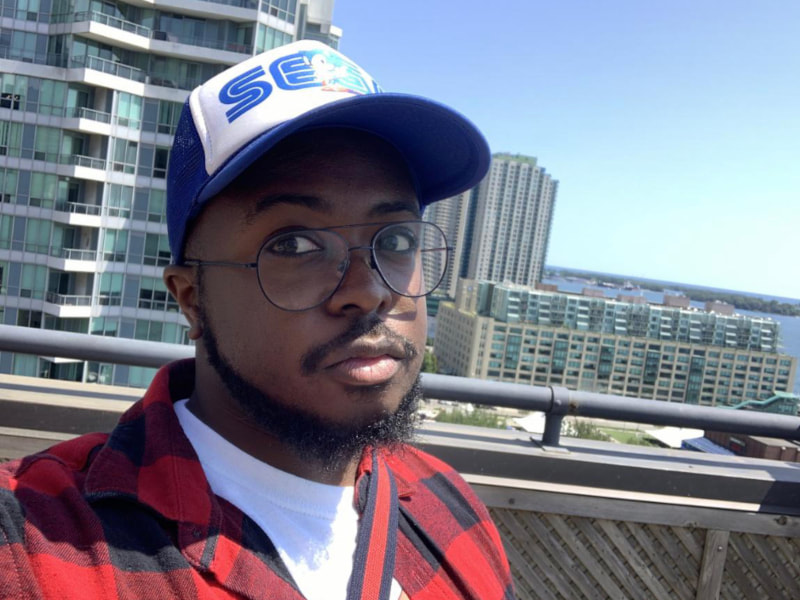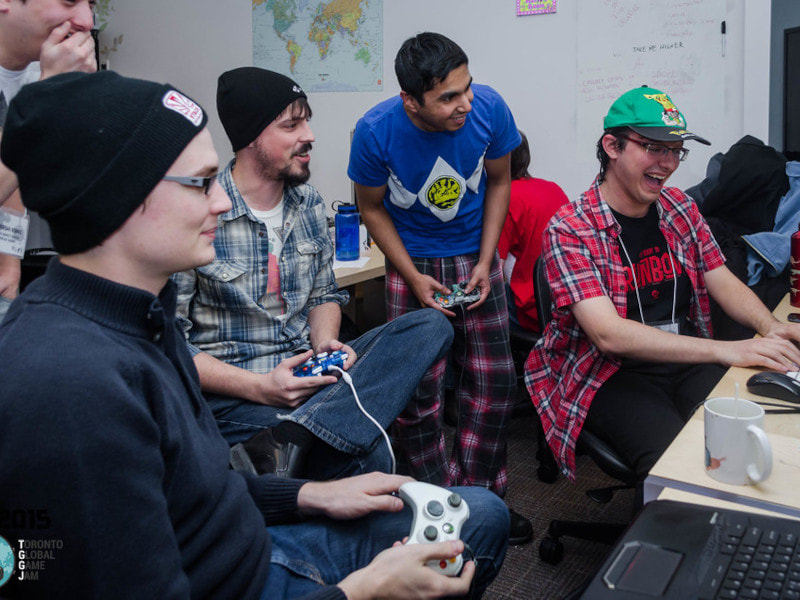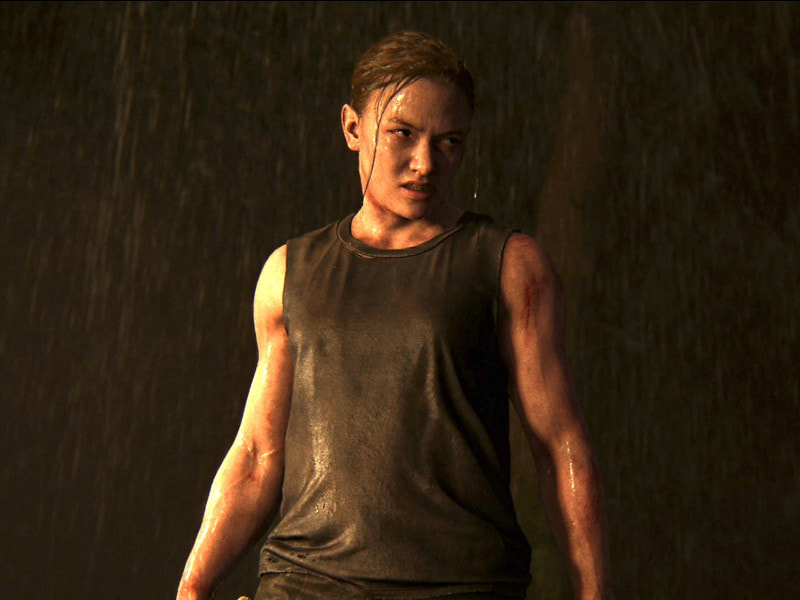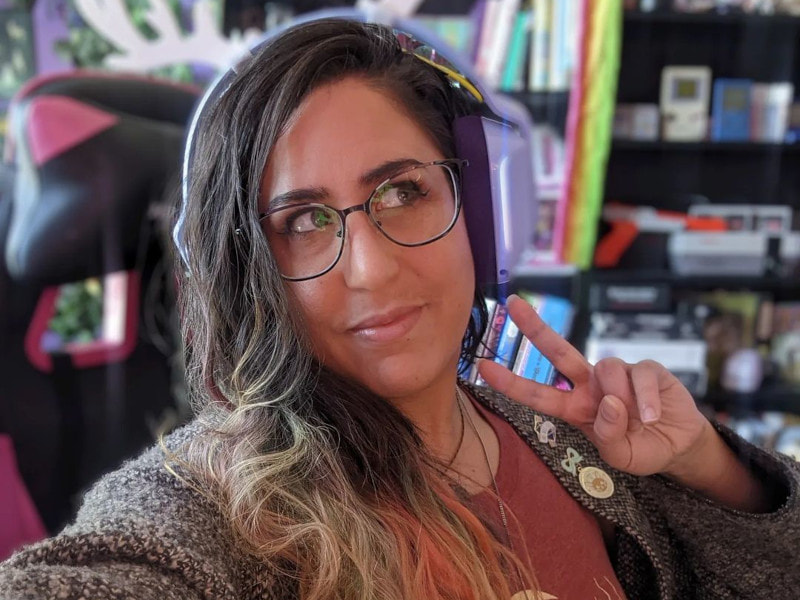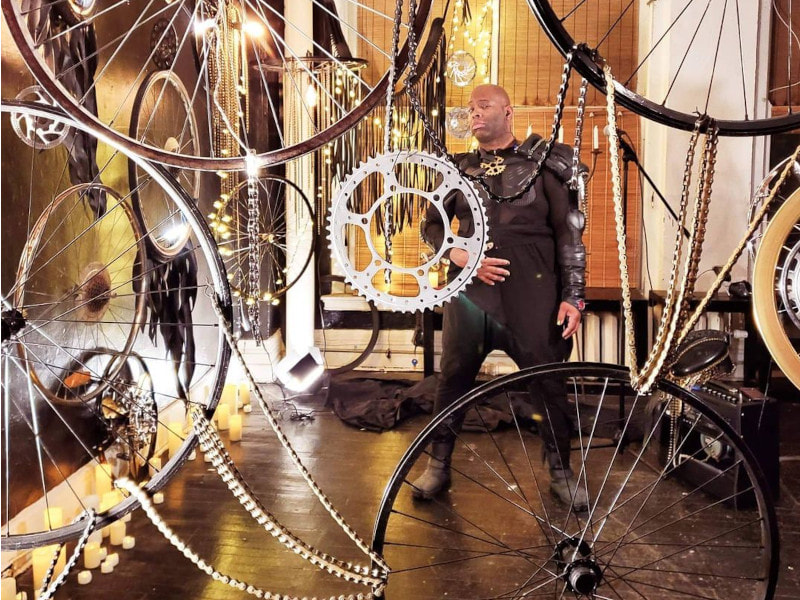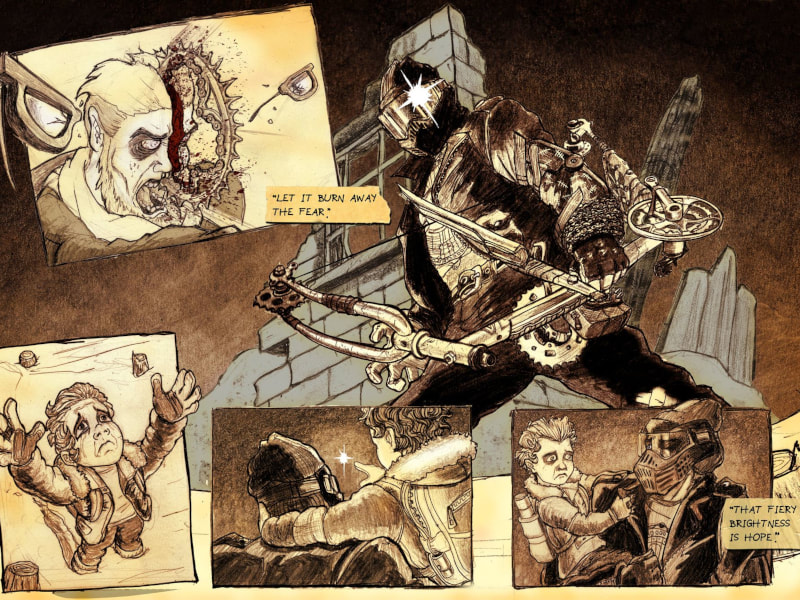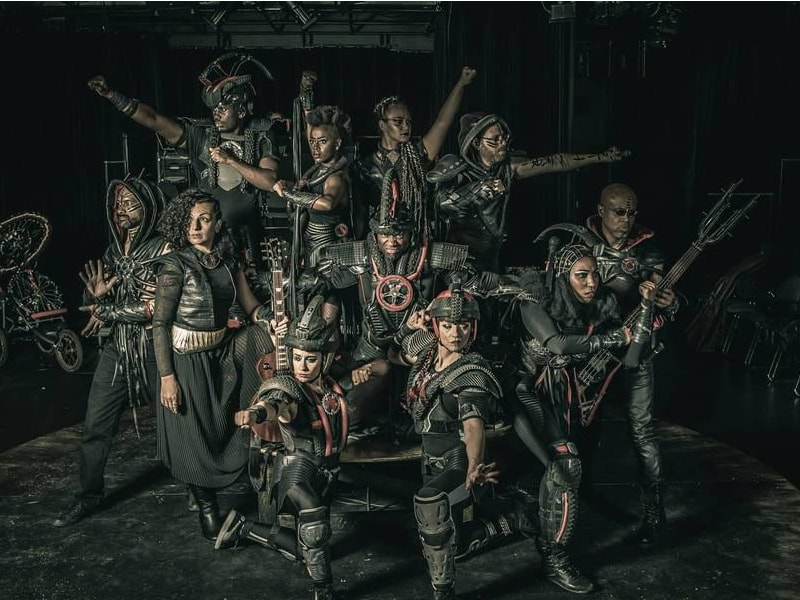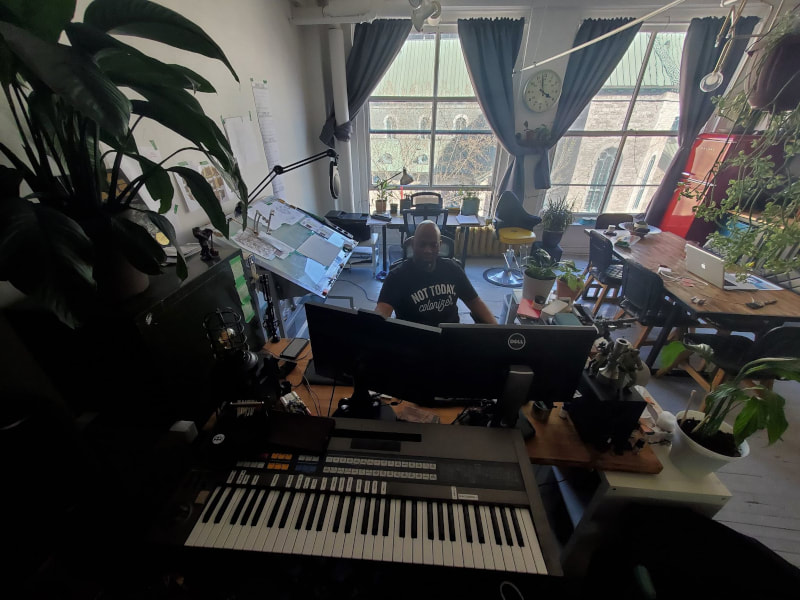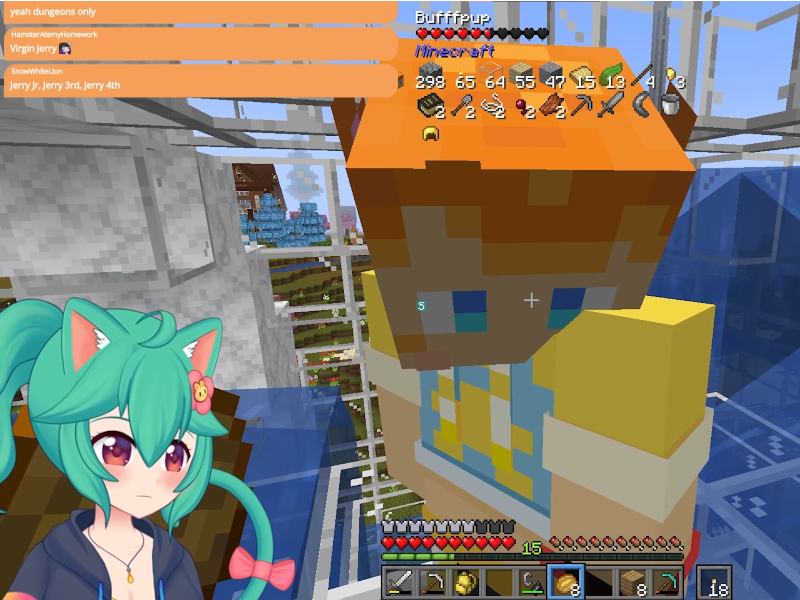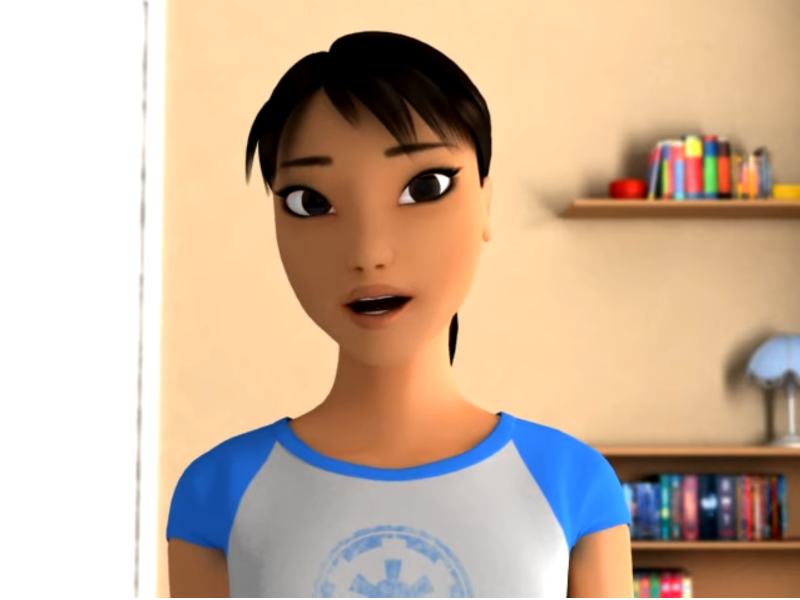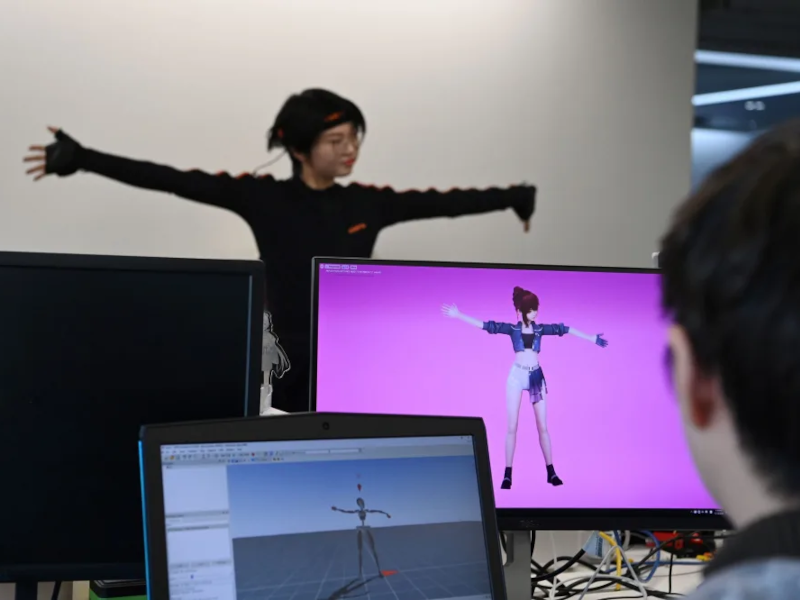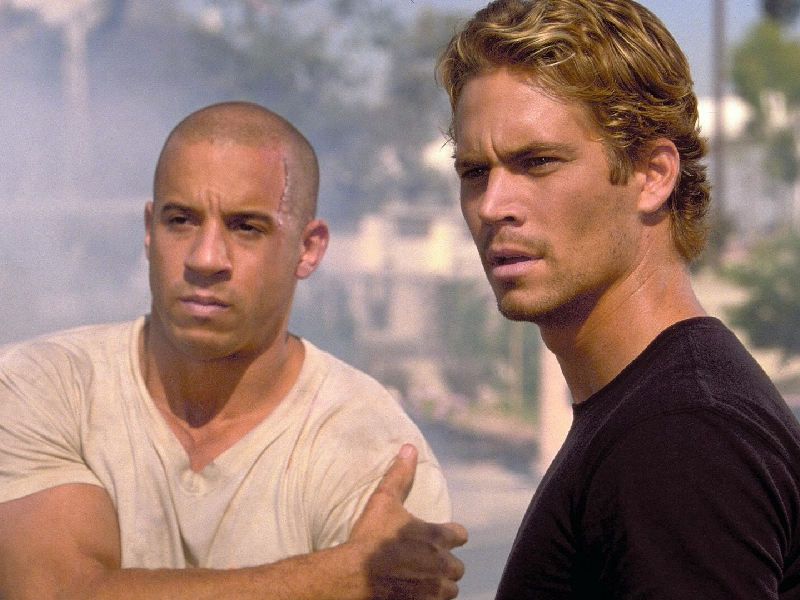Promoting Empathy in Video Games with Toronto-based Game Developer Royel “Rokashi” Edwards2/16/2022
By Minh Nguyen For some, video games are a form of entertainment; for others, they are a means to escape reality. For Royel “Rokashi” Edwards, video games are more than just that. The 31-year-old Queer Toronto-based game designer has made a few games about mental health. However, Edwards does not want to stop there; they have gone on panels and interviews to talk about how easy it is to make video games. Their first game, after all, was a text-based adventure game on Twine, an open-sourced program that requires no coding, that harvested compliments. “I want to see marginalized people create games based on their culture. I’ve been trying to get more people, no matter how much experience they have, to make more of those games and educate people” – Royel “Rokashi” Edwards Edwards seeks to promote Queer representation and mental health awareness through both their games and their efforts in connecting to other people in the gaming sphere. After graduating from the Journalism and Broadcasting program in Humber College in 2013, Edwards, who is of Jamaican roots, covered local events and press releases from reputable game companies like Sony and Nintendo. In 2015, they attended the Toronto Game Jam, an event where indie developers had to make a game in three days. Hesitant at first, Edwards ended up joining and churning out I’m Fine, a game about a man struggling with his suicidal thoughts. When asked about how journalism has helped them with writing video games, Edwards said they are both about storytelling. “I went into journalism to tell stories about interesting people,” and now it is the same thing with video games. Since then, Edwards has made two more games and is now working on their fourth, Faraway Fairway, a golf game. They collaborate with Sam Webster- a music maker, and another programmer both based in Toronto. “Edwards communicates with clarity and are genuinely open to any thoughts/ideas Taylor [the programmer] or myself have about design/music,” said Webster. “They've really honoured my creative voice and given me lots of room to experiment with different musical styles for [Faraway Fairway].” “I want to support local people and see their faces,” said Edwards, darting their eyes to somewhere beyond the camera, pondering. When they speak, they put weight in every word. Besides being the communication managers at Hand Eye Society, a non-profit video games-focused art organization, Edwards also works as the narrative designer at Glow Up Games, an American game studio. To the Black game developer, the best thing about working there is seeing people of their own colour. “There’s no disconnect; when you say something, they know what you mean.” In video games, what Edwards would like to see more is Queer representation. They have not been impressed with AAA game studios’ attempt at promoting diversity so far. An example is The Last of Us Part 2 (TLOU2), a 2020 action-adventure PlayStation game. While it might seem “ground-breaking” to feature the female lead, Ellie, on the game’s cover, “it’s actually not,” said Edwards. The game’s developer, Naughty Dog, did not do the same thing with Abby, the other playable character who is a female-to-male transperson. She drew criticisms for looking too masculine for a female game character. Abby was one of the controversies surrounding TLOU2, besides the game’s narrative decisions, leaked months before its release in June that year, and Naughty Dog putting restrictions on reviewers’ actions in the early copies. The backlashes were so intense the crew received death threats. “Some people say [media companies] are shoving queer culture down our throat, but on TV it’s mostly heteronormative culture everywhere,” said Edwards. According to a 2015 Nielsen report, 65% of LGBTQ+ gamers do not feel like they are represented enough in video games. Moreover, in video games, queer characters are mostly minor, or the queer dialogue options are not accessible enough. To make people understand characters like Abby more, Edwards thinks more people should play games that feature Queer characters. “Make those people seen in games, not forgotten.” Are there enough Queer video game makers? “It’s not that there aren’t enough Queer people making video games, it’s just that you have to dig deeper,” said Jess Go, a non-binary Canadian video game streamer. Go, 34, also thinks some Queer stories focus too much on the tragedy and not enough “joy, happy moments and successes.”
Good writing is also important. “You can tell when a character has zero development or personality,” said Edwards. A good example is Stardew Valley, a farming simulator developed by a straight man that allows players to date an in-game same-sex character. Above all, LGBTQ+ people need to “tell their own stories,” said Go. Big game studios also have to give platforms to Queer developers and moderate spaces to repel hate speech. In Toronto, Toronto Gaymers provide social events and a safe space for LGBTQ+ gamers. Dames Making Games is a non-profit organization that hosts gaming workshops to Queer and marginalized up-and-coming developers. As an indie developer, Edwards wants to focus on inspiring empathy and knowing other people’s experience through their works. They compare their upcoming game Faraway Fairway with taking a vacation. While some people do so to recharge and face reality eventually, others see that as a time to self-reflect. “I want people to know that they’re not alone in their thought processes. If I speak about mental health, it would lift people up and bring them along,” said Edwards. By Minh Nguyen Lateef Martin is a man of many talents: he is an illustrator, a musician, an instrument builder, a voice actor, and a video game maker. The 46-year-old Black Canadian juggles between all these roles as the founder of the Montreal-based multimedia studio Miscellaneum Studios. His motivations? To not get bored, and to fight for more Black representation in video games and other forms of media. “Black people are usually just sidekicks, pimps or thugs. I don’t often see myself reflected in the media.” – Lateef Martin In a white-dominated video game industry, Miscellaneum Studios seeks to promote diversity and give voices to the marginalized groups through their products - and work environment. Founded in 2013, Miscellaneum Studios currently has six members scattered across Montreal, Quebec City, Toronto, and even in the United States. Their current projects include the post-apocalyptic comic series Z’isle, with six volumes currently available on ComiXology; Abdul Lateef and the Distraction Machine, a music theatre production; and The Distraction Machine, an in-development video game that acts as a prequel to Z’isle. The team garnered funding for the comic book series on the crowdfunding platform Indiegogo, where supporters could create their own character profiles. “Finding funding has always been hard,” said Martin. His first project, a sci-fi video game about firefighters on Mars named The Firemasters, had to be put on the backburner - (“No pun intended,” laughed the studio owner) - due to the lack of funding. “I think about that project everyday.” Another challenge is cultivating interest through social media. Martin’s Instagram posts of him building his own instruments for the theatre production, which includes a bike harp that he calls “Lethelium,” received attention in the past. Now that the algorithm of the platform has changed, it is getting more difficult. Nonetheless, the core of Miscellaneum Studios stays the same: to feature characters that represent minority accurately. “Stereotypes serve their purposes sometimes, but my problem with them is that they don’t humanize the characters or give them agency.” - Lateef Martin. His role model is African-American actor Ernie Hudson, who played Winston Zeddemore in Ghostbusters (1984). “He didn’t fit into a stereotype,” said Martin. The video game industry in Canada lacks representation. As profitable as it is - contributing $5.5 billion to Canada’s GDP in 2021 - 56% of the companies have not developed any program to support equity, diversity and inclusion (EDI). According to a Developer Satisfaction Survey (2019) conducted among game developers in the United States, African-American or Afro-Caribbean people only represented 2% of the workforce. One of the reasons is the idea that Black people do not suit the company’s culture fit. When a company is dominantly white, they might be hesitant to hire someone who is outside of their work circle or does not look like them. Miscellaneum Studios do things differently: they hire people based both on their skills and races. In terms of producing their works, they also reach outside of their team and consult people of marginalized communities for their inputs. How do they deal with tokenism, in which companies only hire people based on their skin colours? Martin said it depends on the core values of the company. “If you hire a minority person and even put them in a leadership position, you still put them in an already violent, hostile culture.” – Lateef Martin. Toxic work environment has been a problem in the video game industry. In July 2020, sexual harassment allegations have resulted in the departure of three executives in Ubisoft Montreal, one of the largest game studios in the world. Miscellaneum Studios has maintained a safe and comfortable working environment. Art director Izabelle Duguay, a 40-year-old white artist who joined in 2013, used to decorate their studio in downtown Montreal with Martin to provoke a “cozy, supernatural, inspiring” mood. Now that the team corresponds over Discord, the work meetings are still casual and productive. “I feel secure. I feel like I can go beyond myself [in this environment],” said Duguay. Miscellaneum Studios received funding from Coalition of Innovation Leaders against Racism (CILAR), a non-profit organization that worked with Facebook Canada to launch a Grant program for Black-led businesses, and Black Opportunity Fund, a charitable organization who seeks to dismantle anti-Black racism, last October. They spent the $5,000 received hiring their community manager. This is just another step in reaching Martin’s ultimate goal: becoming the next Lucasfilm, with multiple multimedia projects. His other goal is to change the industry and make an example of a safe, responsible and inclusive company. “A salad isn’t just lettuce; you need to mix things up to be interesting,” said Martin. By Minh Nguyen Rosedoodle (@rosedoodles) is an Ontario-based art streamer on Twitch, a livestreaming platform, since 2018. She had her big breakthrough in February 2020, when she hung out with a popular streamer and caught the attention of his audience. Once having only a handful of viewers, Rosedoodle now averages over 500 per stream. However, no one has ever seen her face – she only appears as a stubby white-haired squeaky-voiced anime character on screen. She was in VRChat, a virtual reality game where people can use an avatar to roam around and chat with each other, with that streamer. Rosedoodle belongs to a growing group of content creators called Virtual YouTubers, or VTubers. These creators form a unique dynamic with their audience through their digital mascots. In VTubing, a person uses motion capture technology to appear as a virtual character on camera. The equipment ranges from a studio with actors wearing motion capture suits, to just a PC, a webcam and face detection software. The first VTuber is London-based Ami Yamato, who started doing short vlogs about her daily life in 2011. The phenomenon took the world by storm when Japanese VTuber Kizuna Ai arrived in 2016. Created by Tokyo-based digital production company Activ8, the mascot with the pink bow and sailor uniform sang, danced and screamed her way into the Japanese and English-speaking audience’s heart. Since then, VTubing explodes in popularity. A YouTube report (2020) shows VTubers view grows to over 1.5 billion per month. So why do so many people tune in to talking anime characters? “Having a VTuber model gives you a more eye-catching thumbnail and presentation,” said Rosedoodle, now using a green-haired cat girl model. “That’s why people use very bright colours or very specific aesthetics.” After seeing good receptions, Rosedoodle decided to try streaming VRChat. A former freelance illustrator, she now streams full-time; her income comes from Twitch subscriptions, YouTube videos and merchandise. She hits Twitch three times per week, doing arts or playing video games up to seven hours each time. “My channel is a place for people to relax and unwind at the end of the day, and as long as I have that I’m happy with my content” – Rosedoodle Having a unique branding is one thing; giving the audience a sense of human interaction is another, especially during the lockdowns. “People were socially starved because they couldn’t go out,” said Rosedoodle. For the VTubers, not having their face on camera means one fewer concern. “When I stream with a face cam, I gotta get the lighting right, the camera on, the makeup on. But with VTubing, I can look flawless all the time, so I can focus on what I wanna do, the content I wanna make.” – Deophest, Jamaican-Canadian VTuber The 27-year-old Calgary-based streamer had to rely on streaming when she lost her job during the pandemic. Now, it is her side gig besides a day job in data science. Her revenues come from a sponsorship with an American coffee brand. According to Deophest, having a digital mascot also grants streamer “digital safety.” “Normal streamers can have 2000 people wanting to know what they do, where they are. But with VTubers, people engage with their characters.” Do VTubers adopt a different persona, then? Deophest said it is more like playing a character that resembles her. “It’s my personality but more embellished to the fun aspects. Because you can’t have cat ears in real life.” Still, real life and virtual life can have a blurry line. Having a high-pitched voice and a cute model, Rosedoodle has received weird requests from anime fanatics. “People asked me to say weird anime tropes/phrases,” said Rosedoodle. “I decided to tell them, I’m not going to give you this unless you give me something. If you donate $500 I’ll say it.” And someone did. It is not all about creepy anime stuff; the VTubers have full control of their image. “I don’t put out sexy content; I’m more like goofy chaotic stuff.” This also influences their fanbases. Deophest describes her own community as “tight-knit” and “like a festival.” “It’s like this big party where everyone is welcome.” Her Discord server, named Deofest, only has one rule: keep the vibes good. The outgoing VTuber has suffered from social anxiety, and streaming has been a form of exposure therapy for her. “It helps me overcome the crippling fear of being around people I don’t know.” For Rosedoodle, VTubing has made her a better speaker. “It makes me more comfortable with speaking for a long period of time. It also helps me formulate my thoughts better and present myself in a confident way.” It might seem hard to relate to fictional characters; but with VTubing, everything is real. Behind each mascot is a person who just wants to make their audience happy. “I’m fortunate to cultivate a community of people who are understanding” – Deophest
By Giancarlo Aulino Fast & Furious - one of the highest grossing film franchises ever - recently celebrated its 20th anniversary and the release of the latest installment: F9. This newest addition swiftly raced to top spot in the box-office by grossing $70 million domestically and $404.9 million worldwide on opening weekend.
This year marks the three-year anniversary of Bill C-45 being passed, which ushered in the legalization of marijuana in Canada. We wanted to celebrate by highlighting THREE authorized Black-owned Cannabis retailers.
By Akilah James Each year, April 22nd marks International Mother Earth Day. The day re-establishes the importance of environmental protection as well as a call to fight climate change. With the climate crisis only getting worse, this year’s International Mother Earth Day focuses on the importance of biodiversity - and Covid-19 pandemic’s harsh effects on our ecosystems.
|
Recent Posts
|
|
GET THE APP!
Listen to VIBE 105 anywhere you go!
|
OUR STATION
|
TUNE IN RADIO
|
STAY CONNECTED
|
Copyright © 2021 Canadian Centre for Civic Media and Arts Development Inc. Except where otherwise noted, presentation of content on this site is protected by copyright law and redistribution without consent or written permission of the sponsor is strictly prohibited.


